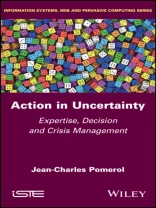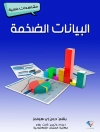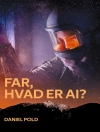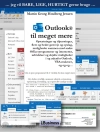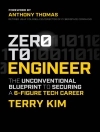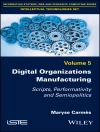Despite uncertainty, people are born to act. Faced with environmental aggression and upheaval, inaction is more stressful than action.
What choices, strategies or methods need to be implemented so that action is as effective as possible in terms of the objectives to be achieved? We should not delude ourselves about the term ‘good decision’, which does not have much meaning when we act in an uncertain environment and when we know the weakness of forecasts. However, we must know how to act and be capable of taking the most appropriate action.
Action in Uncertainty is a real guide to taking effective action when nothing is certain. According to the different types of uncertainty, what are the respective good uses of expertise and intuition? How do we motivate teams and avoid cognitive bias and manipulation? These themes are dealt with in clear and accessible terms to help decision-makers make the right choices in a world that is more uncertain than ever.
Table des matières
Chapter 1 Born to Act 1
1.1 It’s hard not to act 1
1.2 What is the result of the action taken? 3
1.3 To act or not to act 4
1.4 Synopsis 6
Chapter 2 Two Kinds of Actions: Immediate or with Reasoning 7
2.1 To depend on us or to not depend on us 7
2.2 Action triggered by recognition 9
2.3 Human decision-making 12
2.4 Reasoning before action 17
2.5 Between recognition and reasoning, learning 22
2.6 Conclusion 25
Chapter 3 Anticipation and Planning 27
3.1 A more desirable state of the world 27
3.2 Anticipations 28
3.3 Individual planning 37
3.4 Organizational planning 40
3.5 Conclusion 44
Chapter 4 Act Anyway! 45
4.1 Rationality of the action 46
4.2 Dying of hunger or dying of thirst? 54
4.3 Individual obstacles 59
4.4 Organizational barriers to change and action 68
4.5 Speed of action, heuristics and probabilities 79
4.6 Conclusion 90
Chapter 5 The Conduct of Action and Leadership 93
5.1 On the implementation of decisions 93
5.2 Teaming up 96
5.3 The leader and leadership 105
5.4 Conclusion 111
Chapter 6 Intuition, Expertise and Decision-making 113
6.1 Intuition and ‘natural decision-making’ 113
6.2 Expertise, experts and decision-making 123
6.3 Expertise, environment and uncertainty 129
6.4 Conclusion 137
Conclusion 139
Index of Proper Names 147
Index of Terms 151
A propos de l’auteur
Jean-Charles Pomerol is a specialist in decision support systems and a pioneer in the teaching of artificial intelligence. He headed the Pierre and Marie Curie University (UPMC), France, for several years and has since been president of several foundations and of AGORANOV, the most renowned incubator in Paris.
